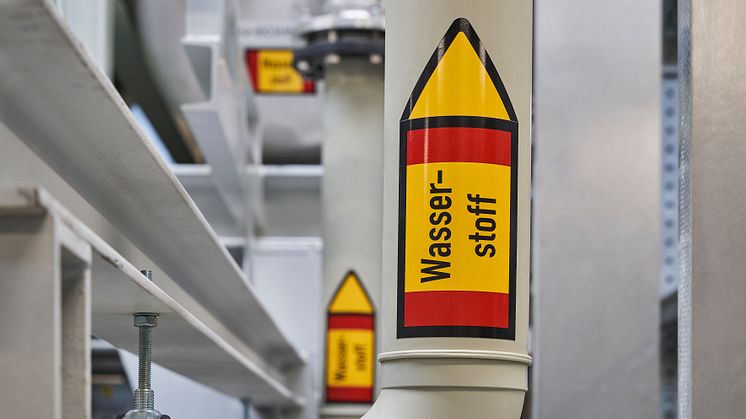
News -
Federal Government and North Rhine-Westphalia Undertake Practical Check for the Approval of Electrolyzers
The Federal Ministry for Economic Affairs and Climate Protection, the Federal Ministry for the Environment, Nature Conservation, Nuclear Safety and Consumer Protection and the Ministries for the Environment, Nature Conservation and Transport and for Economic Affairs, Industry, Climate Protection and Energy of the state of North Rhine-Westphalia met with companies and authorities on Friday, 14.02.2025, to discuss ways to speed up and simplify the approval process for electrolysers. The practical check took place in Düsseldorf.
As a versatile energy source, hydrogen will play a key role in Germany's future energy supply. Climate-friendly produced hydrogen makes it possible to significantly reduce CO₂ emissions, especially in industry, power plants and transportation. The ramp-up of the hydrogen economy is therefore of particular importance if Germany is to become climate-neutral by 2045. The federal and state governments have further improved the legal framework for electrolysers in recent years, most recently by amending the Ordinance on Installations Requiring Approval (4th BImSchV).
Practice checks are a new approach to reviewing the applicability and enforceability of processes, creating clarity for all stakeholders, optimizing procedures and reducing unnecessary bureaucracy. To this end, experts from business and administration go through processes together from start to finish, identify bureaucratic obstacles, test their feasibility and develop solutions. For example, the BMWK has carried out successful practical checks on the topics of photovoltaics and onshore wind energy and incorporated the results into corresponding draft legislation.
The workshop began with an exchange with applicants from companies that are planning the construction of electrolysers and have already implemented some of them, as well as experts from the approval authorities (the district governments) and the State Agency for Nature, Environment and Consumer Protection (LANUV). The aim was to draw practical conclusions from the legal improvements and to collect further challenges. The immission control permit also includes other technical aspects to be examined, which were also discussed during the workshop.
The proposals for further optimization of the approval procedures for electrolysers were recorded in a results paper. These results can be incorporated into the possible further development of the legal framework, the design of enforcement and the preparation of the procedures by the applicants. To this end, a further exchange between the federal and state ministries involved has already been agreed.
